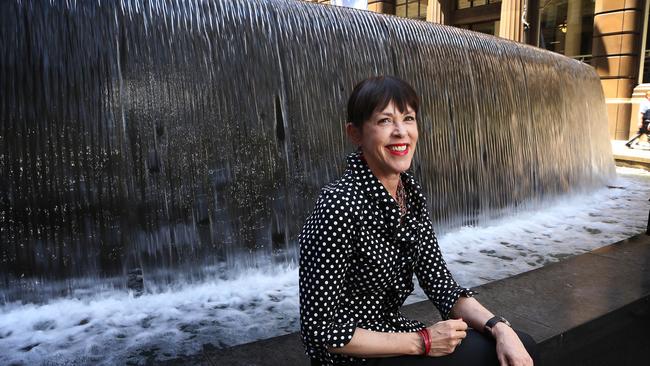Weekend professional: Worker stress busters
Organisational psychologists are increasingly in demand in Australia as companies.

Organisational psychologists are increasingly in demand in Australia as companies recognise the need for in-house staff to deal with stress, workloads, communication barriers and wellbeing.
Last year industrial organisational psychologists — people who specialise in human behaviour in the workplace — were ranked as the fastest growing occupation in the US by its Bureau of Labour Statistics, and their value to business has been growing.
The BLS is expecting a growth rate of 53 per cent in companies employing organisational psychologists in the US between now and 2022, which Macquarie University senior lecturer and organisational psychologist Ben Searle says reflects in Australia.
“One of the reasons organisational psychology is growing so much, particularly in the US where there are sufficient numbers to track it, is that the skills we teach are really versatile,” Searle says. “For someone who works in human resources in an organisation and if their company downsizes their HR department, their skills would allow them to go and work in outplacements, work with organisations that are assessing workplaces — they’re very versatile as professionals.”
Several university courses have cut organisational psychology masters degrees during the past decade, meaning there are fewer graduates looking for jobs when there is a growing focus on mental health, wellbeing and workplace stress.
“There are organisations desperate to have our students come and do internships,” he says. “Our students by and large tend to be walking into these jobs by the end of their degree. A lot will go into senior levels of responsibility within their first five to eight years because their skills are valued.”
Searle says organisational psychologists work in planning, policy and HR departments, and are valued in senior management, defence, emergency services and white-collar organisations.
But their focus is on improving the mental health of employees and solving staff-related organisational issues and wellbeing.
There is a significant need to improve employee wellbeing; Workers compensation 2013 statistics show the average total cost of mental stress claims in Australia was $282,000 a person. In 2008 Medibank Private estimated workplace stress cost the Australian economy $15 billion.
Searle lists the top five workplace stresses as concerns about future careers, personal achievements, the future, how people are perceived and whether people are doing well at work or school.
The issues that cause the most stress include juggling demands with inadequate resources, heavy workloads and time pressures, having to tackle multiple tasks, bureaucracy and red tape, no clear guidelines and ambiguity about a person’s role, conflict between work and home, office interpersonal issues, and physical danger.
A lack of control is also significant, whether it relates to workload or office relationships.
Searle says all workers handle stress differently and a good organisational psychologist will look not just at how a company is functioning but how each individual reacts to different situations. “Every workplace is a little different and all of these phenomena affect people in different ways,” he says. “If you take job insecurity, someone who doesn’t have a high value for security might be OK with that, they might see it as a challenge. They might be someone who doesn’t have a value for security but does value independence, such as freelancers.
“It’s not that some of them wouldn’t prefer job security, they just don’t get upset without it.”
But he says no one likes to be screamed at and nobody likes to feel stress in the workplace, particularly over relationships.
Not every employee will get along in an office as people of different ages, genders, backgrounds, cultures and philosophies sit side by side. “We’re in an unusual position as occupational therapists, it’s important for us to understand the individual and work out how that stress plays out, and work with them one on one,” he says.
“We also try to see the bigger picture in an organisation and find out what the pressures are, and we can get more out of people if we look at potential pressure and look at the bigger picture.”
While workplace health and safety rates of injury have decreased during the past 20 to 30 years, stress rates have increased or stayed the same.
Searle says employment-related mental health injuries are still managed poorly, with an ongoing reluctance from workers to seek help or discuss problems.
Psychologists can help companies deal with change
Penelope Faure is an expert on cross-cultural training and career transitioning, having managed her own move to France for 20 years and back into the Australian workforce 11 years ago.
The organisational psychologist, who works for career transition company Audrey Page and Associates, coaches management level executives, helping them perform better in their roles.
“My job can very often be about organisational culture,” Faure says. “When an organisation is under a lot of job insecurity, some industries are changing, there are lots of disruptions, the way that’s managed can often help their employees manage as well.”
Faure says people deal with many issues during work, from companies cutting staff and expecting staff to do more work with fewer resources and unpaid overtime, in high-stress situations where people do not get along, to one-sided relationships with unsupportive bosses.
Organisational psychologists help people through the challenging times when they question what they do, she says, and they can offer advice on how to deal with those problems or help them find an alternative career path.
“From my own experience and talking with other organisational psychologists, our training is based on the theory of why people do what they do and there’s a science around what we do, but it’s also very practical in helping people feel better,” she says.


